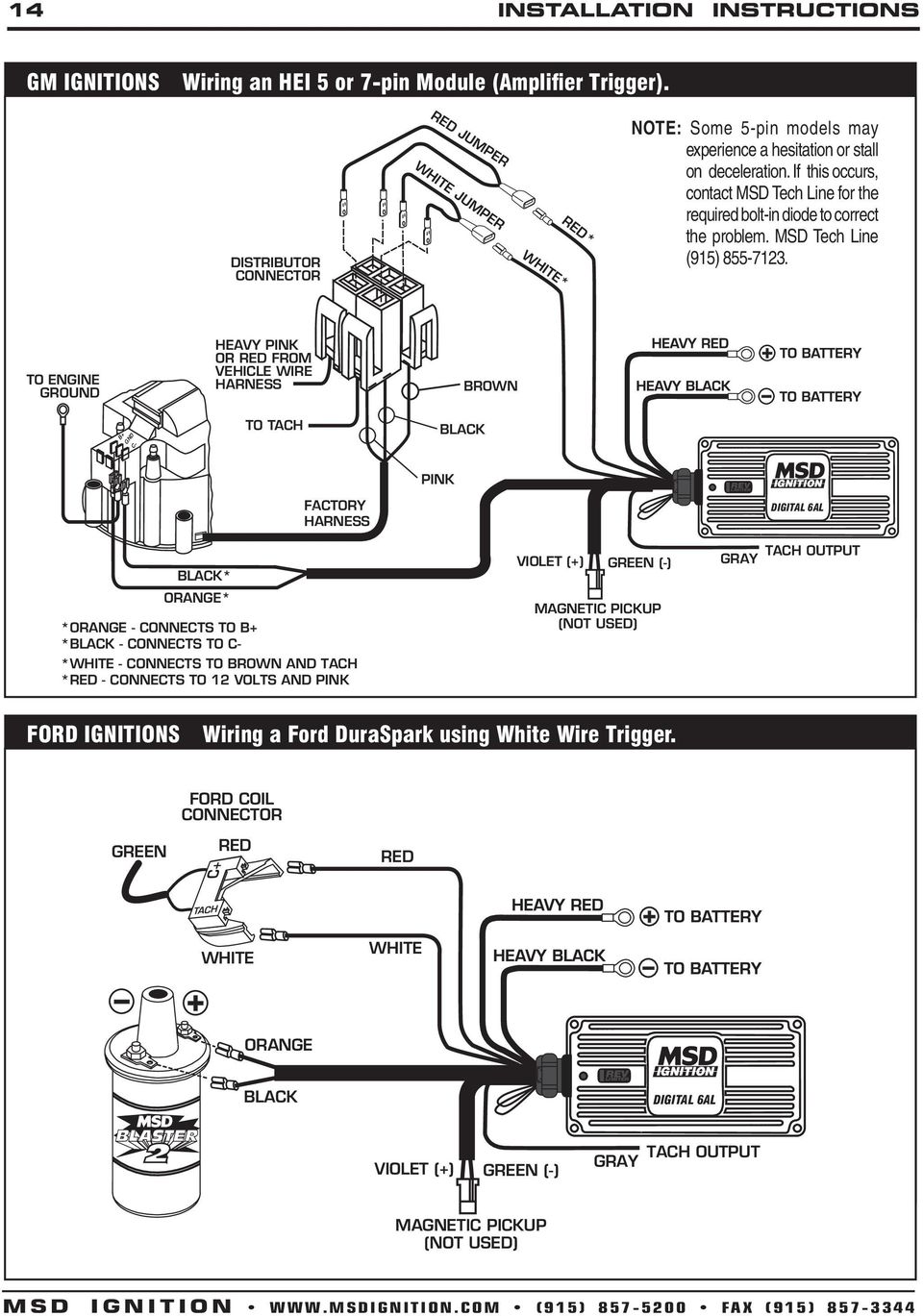When it comes to understanding the intricacies of your vehicle’s electrical system, having a reliable wiring diagram is essential. The Msd 6al Wiring Diagram provides a detailed overview of how the various components in the system are connected, helping you troubleshoot issues and make necessary repairs.
Importance of Msd 6al Wiring Diagram
- Helps in identifying the location of wires and electrical components
- Allows for easy tracing of circuits and connections
- Aids in understanding the functionality of different parts of the electrical system
- Essential for performing maintenance and repairs accurately
Reading and Interpreting Msd 6al Wiring Diagram
Reading and interpreting a Msd 6al Wiring Diagram can seem daunting at first, but with a little practice, you’ll soon be able to decipher it effectively. Here are some key tips to keep in mind:
- Start by familiarizing yourself with the symbols and abbreviations used in the diagram
- Follow the flow of the diagram from one component to another to understand how they are connected
- Refer to the legend or key provided in the diagram for additional guidance
- Use color coding to differentiate between different wires and connections
Using Msd 6al Wiring Diagram for Troubleshooting
When faced with electrical problems in your vehicle, a Msd 6al Wiring Diagram can be a lifesaver. Here’s how you can use it for troubleshooting:
- Identify the specific circuit or component that is causing the issue
- Trace the wiring path to locate any damaged or faulty connections
- Check for continuity and voltage at various points in the circuit to pinpoint the problem
- Refer to the wiring diagram to understand how the component is supposed to function and diagnose any discrepancies
Safety Tips for Working with Msd 6al Wiring Diagram
When working with electrical systems and using wiring diagrams, safety should always be your top priority. Here are some essential safety tips to keep in mind:
- Always disconnect the battery before working on any electrical components
- Use insulated tools to prevent electrical shocks
- Avoid working on wet surfaces or in damp conditions to prevent short circuits
- Double-check your connections before applying power to the system
Msd 6al Wiring Diagram
Msd Digital 6al Wiring Diagram – Printable Form, Templates and Letter

Msd 6al Hei Wiring Diagram – Upart

MSD 6425 MSD Digital 6AL Ignition Control – Red

Msd 6al Wiring Diagram Hei Distributor

How To Install Msd 6al Ignition Box

Wiring Diagram For A 6al Msd Box With Super Class Rpm Switch.
